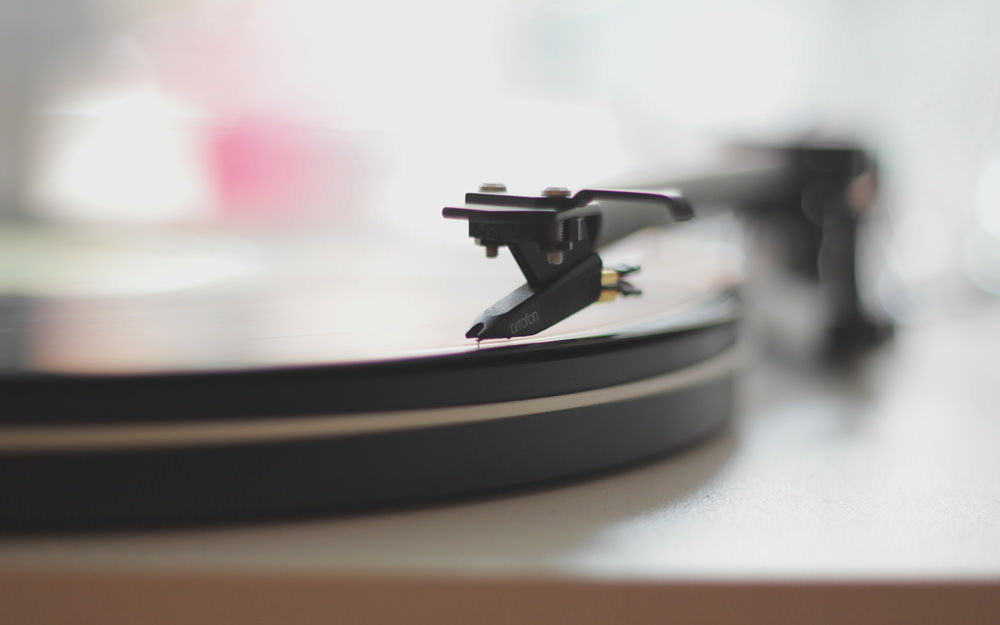Music Doesn’t Have to Sound Good to Be Good

I spend most of my waking hours listening to music. (A definite perk of having a job where you spend 8 hours a day on a computer.) As such, you might expect me to be an audiophile, that I’d consider it nothing to drop serious money on audio gear. You might think that I’d be salivating over $200 earbuds made from solid brass or contemplating which of my kids’ college funds I can cancel so that I can buy a $30,000 turntable… but you’d be dead wrong.
Audiophiles can sneer all they want, but long ago I came to the realization that music doesn’t have to sound good to be good. On the face of it, that statement seems obvious, unnecessary even. Think of all of the countless blues, folk, and country songs recorded onto cylinders and platters — songs that are no less timeless or important because of their less-than-pristine recording. No amount of audiophile wizardry will make those recordings sound better, but that doesn’t matter.
Countless words have been written attempting to explain why MP3s and other audio file formats are inferior to physical media, particularly vinyl, which proponents always claim sounds “warmer” and “fuller” than any digital file could ever hope to. But as Pitchfork’s Adam Ward points out, “The underwater compression of a low-quality mp3 is our generation’s vinyl crackle or skipping CD.” In an article titled “Learning to Love Low Bit Rates,” Ward writes about the numerous MP3s that he’s acquired over the years and admits that, yeah, they don’t sound the greatest, but that’s sort of beside the point.
I’ve come to love these awful quality files. In most cases, listening to their lossless versions just doesn’t sound right to me. My 128 kbps version of Mario’s “Let Me Love You” still has the intro skit from the music video attached, hearing the song without it is jarring. With each layer of compression you can practically hear the thousands of others who shared and copied the same mp3, like a destructive digital fingerprint. Songs ripped from CDs, uploaded to streaming sites, shared via P2P, and burned back to a CD mixtape have incredible amounts of distortion, something akin to today’s over-compressed Instagram memes. Those memes (the author of the linked article calls them “shitpics”) carry the signifiers of their virality, a byproduct of a missing repost option on Instagram and its users ingenuity to circumvent that barrier to share another photo of Kermit sipping the tea.
[…]
I’ve got dozens of tracks like these on my computer still. A 58 kbps copy of Kyuss’ “Supa Scoopa and Mighty Scoop” that sounds like it’s being played through a payphone. A bootlegged CD of Hendrix demos transcoded up from somewhere to 128 kbps. And for a good majority of so-called lo-fi music, or the delta blues and folk music I grew up on, tape hiss and surface noise are necessary affectations that enhance the mood of the piece. There’s a certain point where the desire for flawless sound is outweighed by your nostalgia for hearing it in a familiar way. It explains the near universal admiration for a crackling vinyl record, or the recent fascination with VHS distortion.
When I first started to get into music back in junior high, the only way I could listen to my favorite songs when I wanted to was to tape them off the radio. And when I say “tape them,” I mean that when the DJ announced a certain song was playing, I would grab my cassette player, hold it up to the radio speaker, and press “Record.” Then I could listen to that gloriously lo-fi — and mono(!) — recording nonstop, pressing “Rewind” and “Fast Forward” to hear my favorite bits again and again. Audio quality wasn’t even an option so it was never a consideration; all that mattered was the music, imperfect though it may be.
Four decades later, that’s still just as true. None of this is to say that I don’t care at all about sound quality — I don’t want music to sound like total crap (I’m not a barbarian) — but the experience of listening to music, and the quality of the experience, is so much more than simply the music’s audio fidelity. Our emotions, mental state, nostalgia, enthusiasm… these things play important roles in how music impacts us, more so than any elitist, high-end approach to audio gear and technology.
Think of it this way: If you find it difficult to enjoy a song because you’re not playing it on a $30,000 turntable, that probably says more about you than the music itself.